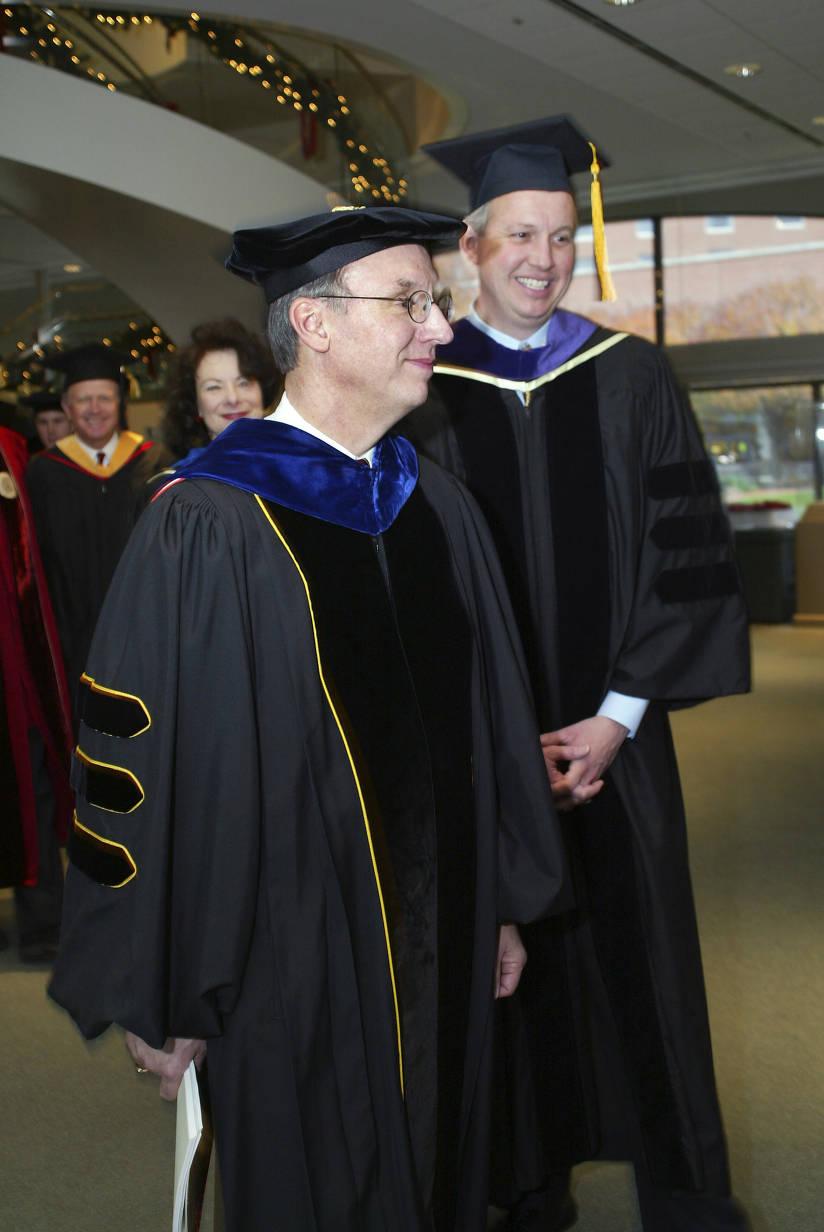On the night of November 6, 2007, , a political unknown, rode a wave of discontent to upset incumbent Mayor , a favorite to win reelection.

With high approval ratings and more than $1.2 million in campaign funds, Peterson easily won renomination by the Marion County Democratic Party and was favored for another victory. Prominent Republicans turned down the chance to run against him. Several lesser-known candidates emerged in the Republican Party primary, which Ballard, a retired Marine officer and management consultant, won.
At first, it appeared that Ballard had little chance of winning. He had no political experience and no name recognition among voters. Republican Party leaders officially endorsed Ballard, but they considered his campaign a long shot and withheld significant financial support. They wanted to use those funds to regain control of the to offset what seemed to be an inevitable Peterson victory. Peterson’s campaign war chest, which eventually grew to over $3 million, dwarfed Ballard’s $300,000 in campaign funds.
Voter frustration with rising crime and rising taxes increased Ballard’s chances of winning. In March, the rate of violent crime in Indianapolis began to outpace the previous year’s rate. Homicides, burglaries, and robberies were higher than the national average and voters took notice.
Peterson supported a controversial merger between the and the . He said the move was designed to make crime fighting more efficient and to save taxpayers money. However, both crime and taxes continued to rise.

In August, Peterson announced the Indianapolis Burglary DNA Project, an initiative designed to use DNA-based technology to catch burglars. Peterson said the purpose was to reduce property crime and catch burglars before they committed more violent offenses.
Ballard said Peterson’s crime-fighting plans did not go far enough. He attacked the police merger under Peterson as a failure, claiming it led to longer police response times and stretched resources too thin to protect residents. Control of city law enforcement, he said, should be returned to the mayor’s office instead of given to the sheriff’s office. Ballard also called for a return to community policing, which involved officers establishing close ties to residents in their neighborhoods. He pledged to reopen police substations that had been closed.
During the summer, the passed a new local option income tax. Peterson, who approved the tax, said it was needed to settle unfunded police and firefighter pensions that had been owed by the city for decades. He was concerned the pension debt would draw too many funds from current public safety needs. Ballard disagreed, saying the city should focus on urgent needs such as having more police on the streets to fight crime. Pensions, he argued, should be taken over by state government.
Peterson’s popularity was further eroded when property taxes in the city rose by more than 30 percent. His administration told residents that state government was responsible for property taxes. State officials were not on the ballot in 2007, however, but city officials were, and voters directed their anger at Peterson. Activists with the Tea Party, a conservative anti-tax movement, held local demonstrations that attracted media attention and stoked support for Ballard. His supporters began putting up signs around the city that simply stated, “Had enough?”
Peterson’s supporters pointed to the mayor’s most visible accomplishments, such as further that led to the construction of , and successful deals that kept major-league sports teams in the city.
Even though Peterson raised 10 times more money than Ballard, polls showed only a small lead. Ballard won on Election Day with more than 50 percent of the vote. Peterson had 47 percent and Libertarian candidate Fred Peterson (no relation) gathered 2 percent. Peterson was among several Indiana mayors who lost reelection that year.
Ballard’s victory marked the first time an incumbent Indianapolis mayor lost reelection in 40 years. Republicans also regained a majority on the City-County Council and won back control of city government.

Help improve this entry
Contribute information, offer corrections, suggest images.
You can also recommend new entries related to this topic.

